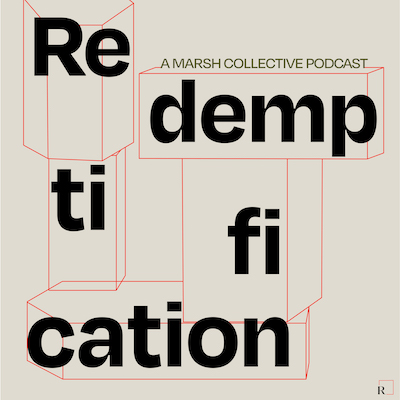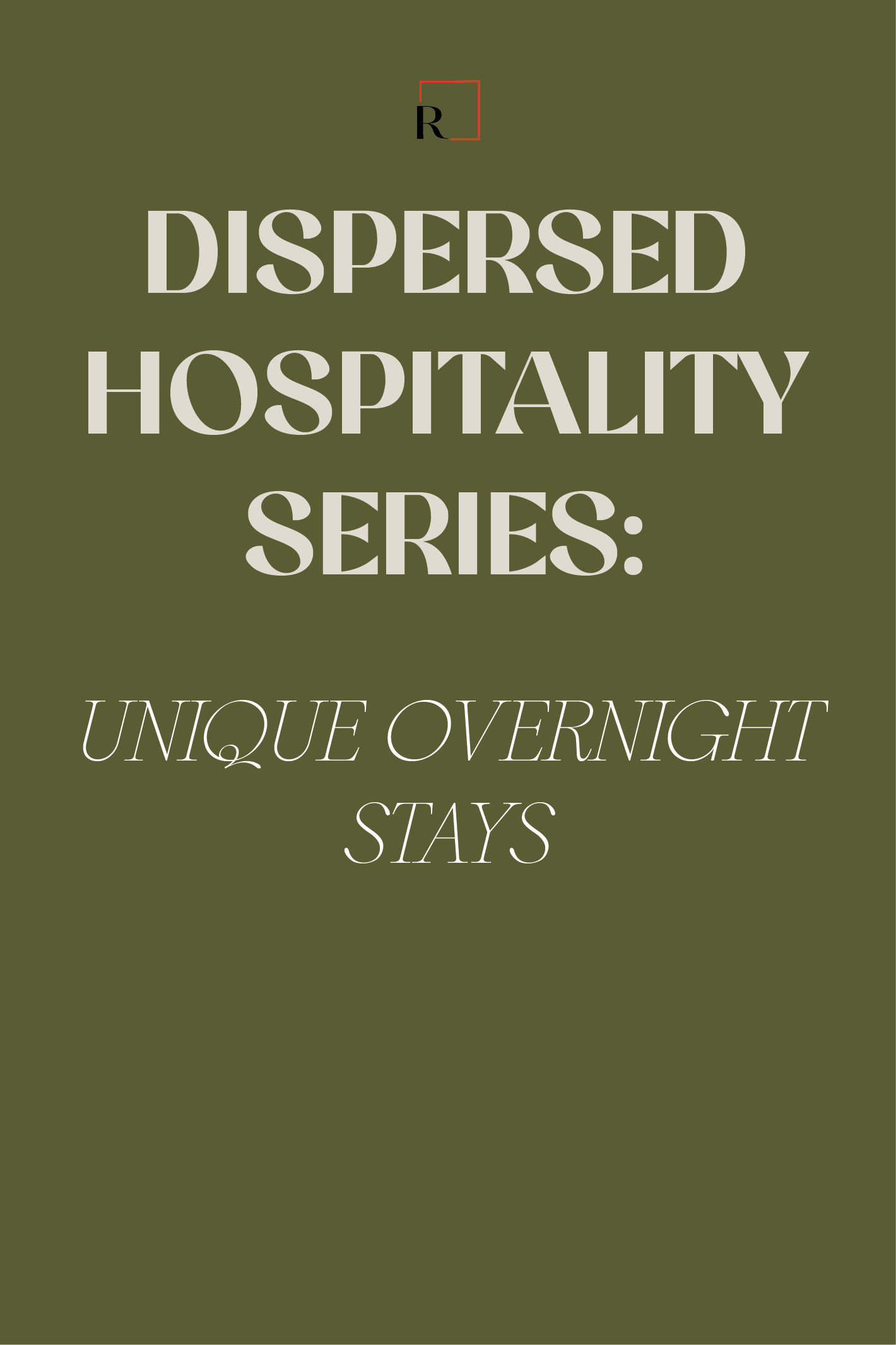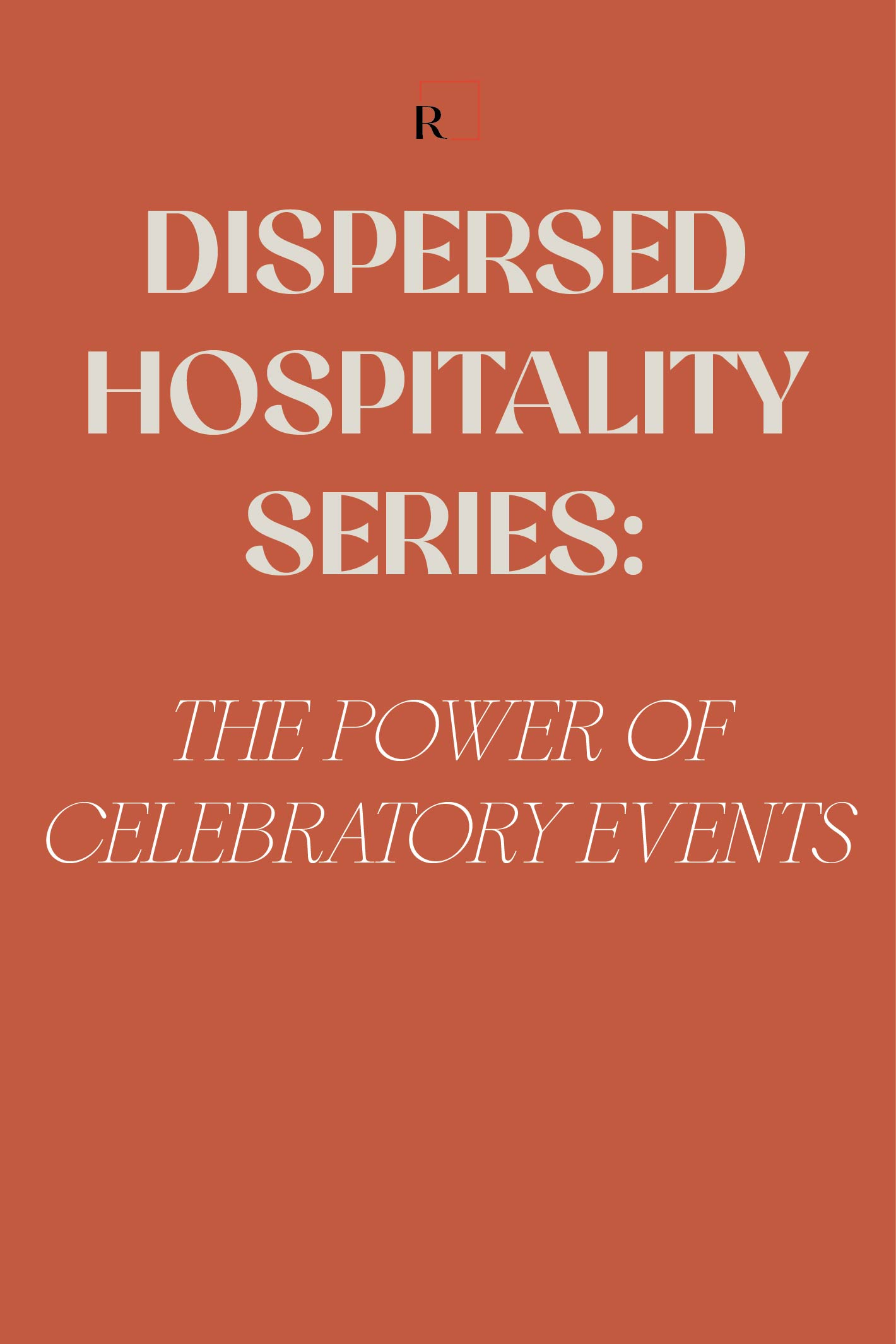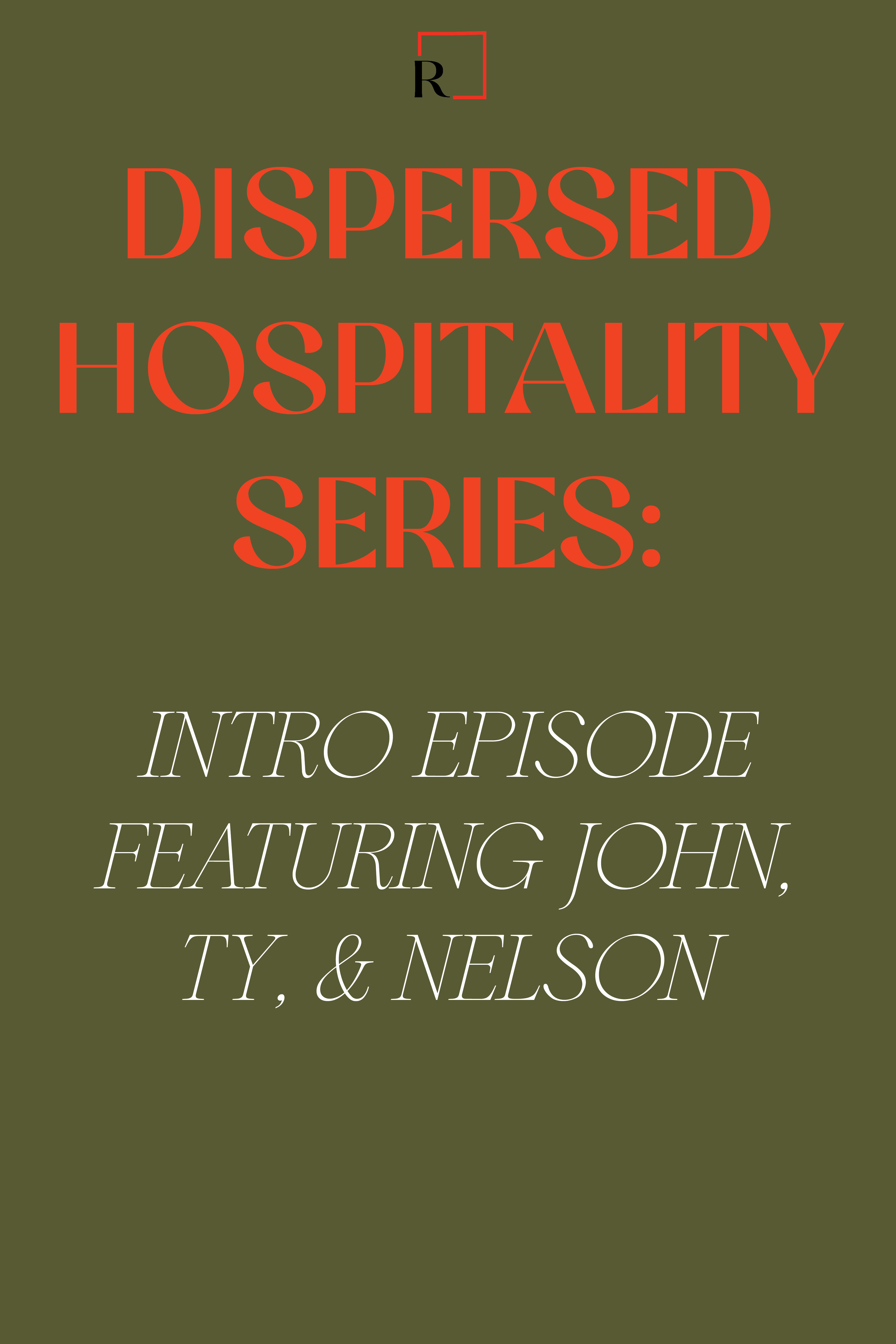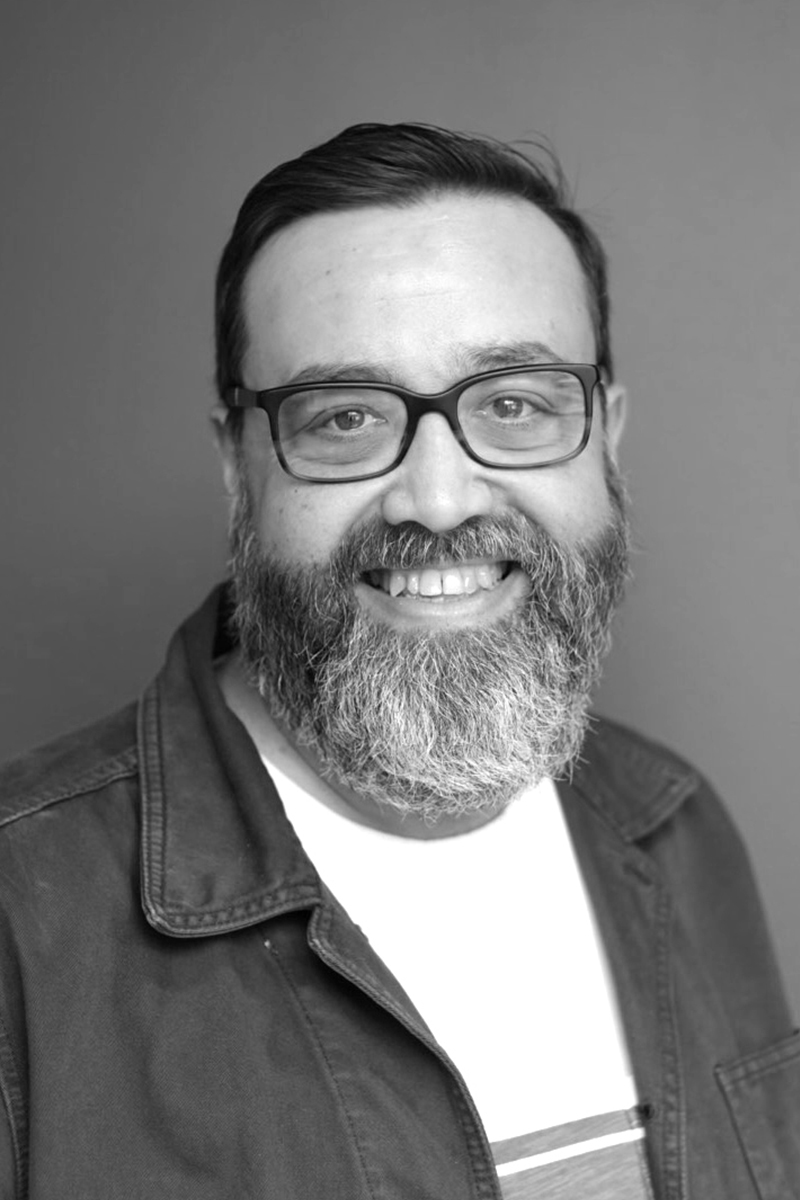Being a Patron, Placemaking, and Priming the Pump with special guest Luke Henry
Luke Henry, John, and Ty have a conversation around their shared experience of being a Patron and the diverse skill set it takes to build momentum when placemaking.
Luke Henry has one of the most diverse backgrounds that you might ever see. Getting his start in the landscaping business, earning a Doctor of Pharmacy degree, and finally, starting the placemaking initiatives, Main Street Reimagined and Henry Development Group.
After working two full time jobs, both running his own landscaping business and working as a pharmacist, something had to give. So, Luke stepped down from his pharmacy career to pursue entrepreneurship completely. While Luke is extremely passionate about landscaping, creating and maintaining outdoor spaces, he has always loved learning business and leadership. Luke’s previous business experience, his love of real estate, and a desire to make his community a better place, lead him to co-found Main Street Reimagined in 2018. Main Street Reimagined started by quietly acquiring 8 buildings on a one block area of downtown Marion, OH that was 70% vacant at the time, with the vision of making it the catalyst of redevelopment and the center of dining, shopping, and entertainment options.
In order to kickstart the development, they also started and operated 4 different hospitality and service businesses. After surviving COVID, these businesses created a regional draw to downtown Marion, and began the momentum that has been created with additional projects by us as well as many others who have joined the movement.
Today, between Main Street Reimagined and Henry Development Group, Marion has nearly 20 buildings in the walkable downtown, most of which have been redeveloped or are in process of redevelopment to a curated mixture of office, retail, restaurant, and loft apartments.
Insights & Inspirations
- 2:30 – And about five years ago, I had what my wife calls a midlife seizure and decided that I wanted to do something a little bit different and a little bit bold. And we’d been buying some rental properties. I bought my first rental property when I was 19, when I was in college. Fixed it up. It was way worse than what I thought it was as they usually are, but I learned a lot of lessons through that one and was, I guess, crazy enough to buy some more and kept buying them through our first several years of marriage. And anyway, five years ago I started looking at our downtown in our hometown of Marion, Ohio. And what I saw wasn’t really great. I had heard the stories from lots of folks in my parents and grandparents’ generation that this was where they went school shopping, this is where they went on Friday, Saturday nights, this is where they ate meals, had community, went shopping, were entertained, walked the streets, drove the streets. – Luke Henry
- 3:40 – So I met a guy who was also interested in doing some of this type of work, and we had lunch one day, it was July 5th, 2018, and I proposed a partnership to him where we buy some buildings on this one block of South Main Street. At that time, that block was 70% vacant, so there wasn’t a whole lot going on, but we had an opportunity to buy some buildings. And so we bought eight buildings quietly. We called ourselves Main Street Reimagined, we unveiled our plan, and it was off to the races. – Luke Henry
- 5:20 – So I figured it had to be easy. And so we were crazy enough to bite it off. And I’m sure we’ll get into some of the discussions about how it was not in fact easy the same as your journey has been. I know, but it looked easy from the outside anyway. – Luke Henry
- 6:30 -I remember sitting there and I said to him, if we don’t do this, who’s going to do it? And that really was a lot of the motivation was just to say, man, we want to raise our families in this community and we know that downtowns can be something really special. – Luke Henry
- 8:30 – you can’t estimate what you don’t specify, and it’s very difficult to specify what you’re going to do when you’re just looking from the outside of these properties. – John Marsh
- 9:50 – Tell me what you would codify his skills as they have added so much value, and then what do you think yours are? …he is extremely artistic and creative in that way with aesthetics and finding ways to blend materials and really has a passion for the older elements of the buildings and how do we marry that with new elements and has very much helped on that design aesthetic, really coming at it from an artistic viewpoint. He also has a much different network than me coming from a different background. So we had kind of different social groups that we could tap into as we were spreading the word about different elements of these things through the years.I come at it much more from the entrepreneurial business side of things. I end up being the de facto CFO, I guess, and sort of CEO to run a lot of the business operations, work with banks and help set up our business processes and do the HR side of things as well to bring on some of our key people that have helped us create not only these properties and then what led to a construction management company and a property management company and several other businesses that have come to inhabit our buildings. – Luke Henry
- 14:30 – Well, what we did have was a vision and we knew that what we wanted was to create an ecosystem. What we needed was something that each place would support some of the others and we could create experiences. – Luke Henry
- 15:35 – And we started taking these people through the buildings and giving them the grand vision and the plan. And each of those tours ended the same way, which was with them saying, we love your spunk, we love your drive and your dream, your vision, but this is just a little too early in this process for us to actually make an investment here. – Luke Henry
- 16:40 – So if that involved us opening up some of those operating businesses, we were prepared to do that. So in addition to the wedding venue, which was always our intent to operate that business, we also owned, opened an ice cream shop and well sandwich shop and a full service salon as well as some loft departments. – Luke Henry
- 17:30 – we believed that renovation was revitalization and we missed the gap that the attracting of successful businesses is no joke – John Marsh
- 20:20 – we believe if a downtown’s going to flourish, it needs iconic food and beverage celebratory events and amazing overnight stay. And if you have that, you can build a place. – John Marsh
- 23:30 – I’ve been thinking about constraints and what a blessing constraints are. And so if you even think about margins in a book you read, imagine a book with where the words run to the edge of the page. Those margins do things. And so with us, to your point, these historic buildings, they constrain us in a way that makes funky cool things happen and beautiful things. And so it’s not just a little better, it can be incredibly better because it’s how it’s designed and your space is beautiful. – John Marsh
- 25:00 – when I heard you say the things around doing things with love and the way that it looks on sticks and bricks, man, that really resonated with me. And so that’s what we’re doing and that’s what you’re doing and that’s what a lot of people are doing. And I think that it just feels so good to actually have the words to say what it is. – Luke Henry
- 25:40 – if we don’t treat this with love, dignity and respect, people in places flourish when you put love, dignity, and respect over ’em every time. It’s the soil of life. – John Marsh
- 29:30 – And so what I realized over some time is that, and probably sophisticated people know this already, but I had to find it out the hard way that different banks have different appetites for different projects at different times. – Luke Henry
- 36:00 – Your buildings are irreplaceable built by people that don’t live anymore with materials we don’t have anymore in methods we don’t do anymore, and approvals and entitlements, we can’t get done anymore. That’s irreplaceable. And with great programming, they’re unstoppable. – John Marsh
- 36:30 – we have to buy what’s on the block and we have to figure out a way to convince a building owner to sell us their building, at a somewhat reasonable price and figure out a way to then make it pencil to turn it into something that fits the ecosystem and fits the community. – Luke Henry
- 42:10 – But what we do know is where we feel like we can make an impact and we have been somewhat disciplined and especially in the beginning of making sure that it was as dense as possible so that we could really make an impact. – Luke Henry
- 44:30 – These are relationships that we had to start and try to kind of water and help them grow, give them some business advice, connect them to an attorney to set up their LLC and insurance and a lot of those pieces. – Luke Henry
- 45:30 – It’s not just an ad on LoopNet and people are coming out of the woodwork to seek us out. It’s things that we’ve had to create and curate.
- 47:30 – Can you give an idea in a sense how big your team is under this umbrella so that other listeners could kind of understand what it takes, what the team looks like? …so our team looks like one construction manager. We have three to four maintenance and construction people in-house in addition to all of our subcontractors for all of our licensed trades. A full-time property manager, a part-time property manager. We just hired a full-time bookkeeper accounting specialist. And we are currently searching for a business development person. – Luke Henry
- 54:00 – It’s working at the intersection of purpose and profits. It’s not ignoring either, but honoring both. And that’s what I say, you want to know what’s the best real estate development idea of all sophisticated real estate development with love. – John Marsh
Information & Links
- Luke Henry – LinkedIn
- Luke Henry – About
- Main Street Reimagined – Marion, OH
Closing Questions
What have you read that we should read?
- One of my favorite quotes in the world, it changed my life in 2010, is that in five years you’ll be the same person you are today except for the people you meet and the books you read. So I’ve become a voracious reader since then, so I could really probably rattle off a whole bunch.
- But probably the most impactful for me lately has been “Who, Not How” by Benjamin Hardy. And it’s been just my mantra as we’ve started. We’re starting four new businesses this year working on five significant downtown projects right now. And there is no possible way that I could lead those individually. It all comes down to the who’s that we’re attracting, recruiting and engaging in this mission to make the things happen.
- Who, Not How by Dan Sullivan and Dr. Benjamin Hardy
Who do you know that we should know?
- I mentioned him earlier, my buddy from college, his name’s Jason Duff, he’s got a company called Small Nation. They’re in Bell Fountain, Ohio, and they’ve done 40 or 50 buildings in their small downtown town of I think 18,000 or something like that. And he’s been a great mentor to me as well, and is doing great work in the world. He’s done a little bit like you kind of taking a show on the road in terms of helping some other folks. And the need is just enormous for this kind of work.
- Jason Duff – LinkedIn
- Small Nation
Where have you been that we should go?
- I will say we, our family, again, this is a fire ready aim. I decided in December we had a family trip with a conference we’re going to go to with our kids in late January in Lake Tahoe. And none of us had ever put on a ski before in our life. And I announced in December that we were going to learn to ski as a family. And as is typical, we went all in fully committed, bought skis for our kids for Christmas. And it’s, it’s been well worth it. There’s been some falls, but it’s been a great family learning experience. There’s been tons of teachable moments. Nobody’s gotten really, really hurt. So hey, if you haven’t done it, you need to do it.
